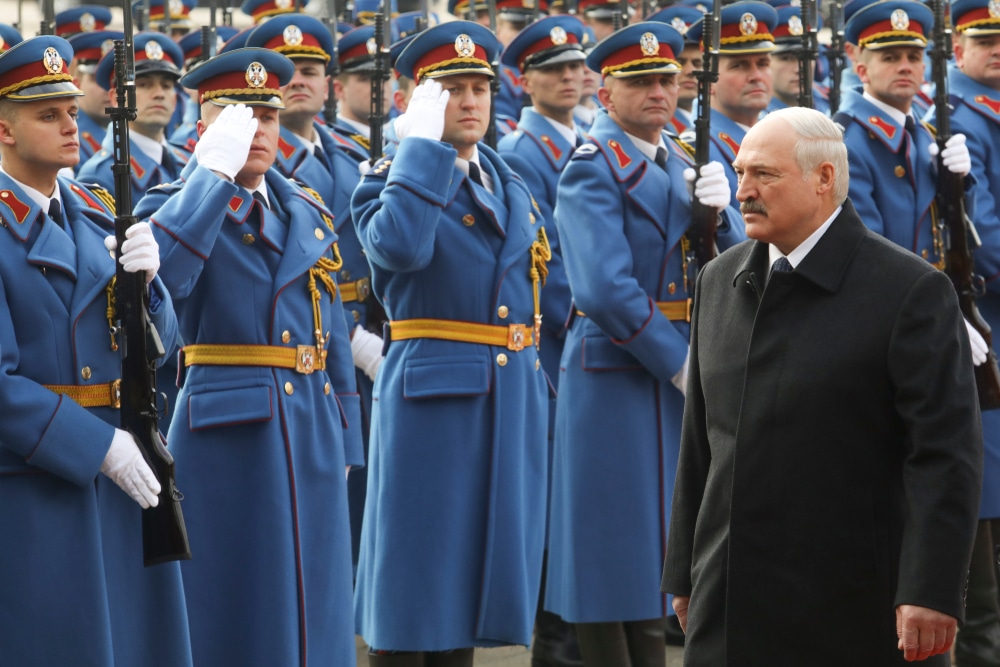Belarusian President Alexander Lukashenko has confirmed that nearly a third of Belarus’ armed forces have been deployed along the country’s border with Ukraine, in response to what he describes as a significant buildup of Ukrainian troops on the other side. According to Belarusian state media, over 120,000 Ukrainian soldiers are stationed at the border.
Lukashenko, a close ally of Russian President Vladimir Putin, stated that the Belarusian military was positioned strategically along the entire border to defend against any potential aggression. He accused Ukraine of adopting an “aggressive policy” and justified the deployment as a necessary measure to safeguard Belarusian territory. The Belarusian leader also noted that the border had been heavily mined to deter any incursion by Ukrainian forces, warning that any attempt to cross would result in significant losses for Ukraine.
The buildup comes as Ukraine continues its offensive operations, including recent incursions into Russia’s Kursk region, which have embarrassed Russian military leadership. Ukrainian forces have reportedly seized over 1,150 square kilometers of territory and more than 80 villages in the region since the start of the offensive on August 6, 2024. The campaign has included attacks on key infrastructure, such as bridges, to disrupt Russian military logistics.
Despite the heightened tensions, Ukrainian officials have downplayed the situation at the Belarusian border. Andriy Demchenko, a spokesperson for the Ukrainian border service, indicated that there has been no significant change in the number of Belarusian troops or military equipment near the border. He suggested that Lukashenko’s rhetoric is intended to escalate tensions to align with Russia’s strategic interests.
Belarus’ defense posture has been a point of concern for Ukraine and its allies, given the country’s role as a staging ground for Russian forces during the early phases of the 2022 invasion of Ukraine. Lukashenko acknowledged that tensions at the border escalated particularly around late June, during preparations for Belarus’ Independence Day celebrations. However, he also claimed that through direct communication channels with Ukrainian special services, Belarus managed to de-escalate the situation temporarily.
Expanded Coverage:








